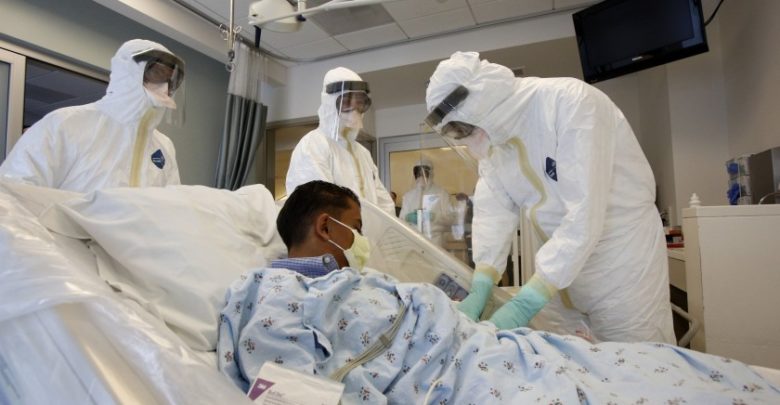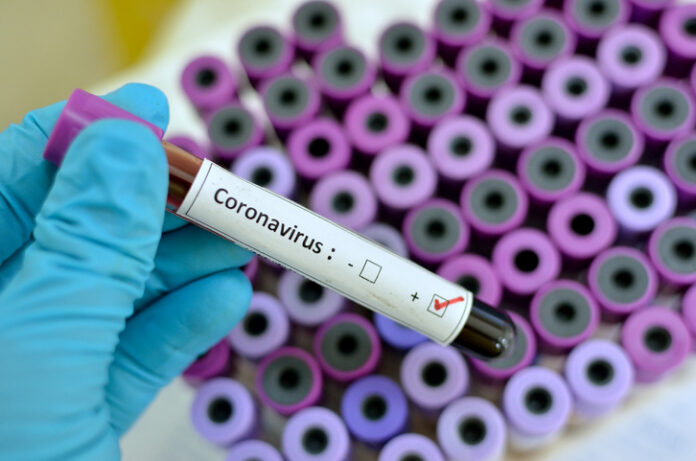10 foods that support your eye health

Like the rest of your body, your eyes depend on a steady supply of nutrients, such as vitamins and minerals, to stay healthy.1
Certain nutrients, such as vitamin A, are essential for vision and eye function, while other substances found in foods, like omega-3s, can help reduce and prevent cellular damage that leads to eye disease and vision loss.
Following a healthy diet rich in fruits, vegetables, and other nutritious foods is one of the most effective ways to care for your overall health, including the health of your eyes.
Here are 10 of the best foods for eye health.
1. Cantaloupe
:max_bytes(150000):strip_icc():format(webp)/EyeHealth-Cantaloupe-6b2041d0a82a41b6a62a6c06c01abedb.jpg)
Cantaloupe is rich in several compounds that promote eye health, including the carotenoids β-carotene, lutein, and zeaxanthin. Carotenoids are yellow- to orange-hued pigments concentrated in certain fruits and vegetables, including cantaloupes.2
Your body converts carotenoids into vitamin A, a fat-soluble vitamin that’s an important component of rhodopsin, a light-sensitive protein concentrated in the retina (a layer of tissue at the back of the eye that detects light). Not taking optimal amounts of vitamin A can negatively affect vision and make it difficult to see in low light.2
One cup of cubed cantaloupe contains 270 micrograms (mcg) or 30% of the Daily Value (DV) for vitamin A.3
Carotenoids also have powerful antioxidant properties and help protect the cells in your eyes from damage that leads to eye diseases like age-related macular degeneration (ARMD)—currently the leading cause of vision loss in older people. A 2022 study found that people with higher blood levels of β-carotene, lutein, and zeaxanthin (all concentrated in cantaloupe) had a significantly lower risk of developing ARMD than people with low levels.4
2. Parsley
:max_bytes(150000):strip_icc():format(webp)/EyeHealth-Parsley-058bdf6704d04d54b026a0d0db74d187.jpg)
Like cantaloupe, parsley is an excellent source of the carotenoids lutein, β-carotene, and zeaxanthin, all of which can protect the eyes and promote healthy eyesight.5
Eating foods high in carotenoids increases macular pigment optical density (MPOD). MPOD is a measure of the concentrations of the carotenoids lutein and zeaxanthin in the macula, an essential part of the retina.
Higher MPOD is positively associated with visual function, while lower MPOD may harm eye health and increase the risk of eye conditions like ARMD. Research suggests that following a diet high in dietary sources of lutein and zeaxanthin, like parsley, plays an important role in protecting against ARMD.6
3. Goji Berries
:max_bytes(150000):strip_icc():format(webp)/EyeHealth-Goji-23644484f1054b6f8669c141b46ce26c.jpg)
Goji berries are packed with carotenoid compounds and have been used in traditional Chinese medicine (TCM) as a natural treatment for eye conditions for hundreds of years. Recent study findings suggest that eating goji berries effectively increases MPOD, which may benefit overall eye health and protect against vision loss.
A 2021 study that included 27 people found that the participants who consumed 28 grams (g) of goji berries five times per week for 90 days experienced significant increases in MPOD, while participants who consumed a lutein and zeaxanthin supplement experienced no changes to their MPOD. This suggests that goji berries contain other compounds that help support eye health and increase MPOD.7
4. Peppers
:max_bytes(150000):strip_icc():format(webp)/EyeHealth-Peppers-36e1f858bf314194bc37c0ee99147609.jpg)
Peppers are high in carotenoids and are one of the richest sources of vitamin C. Vitamin C acts as a powerful antioxidant in the body, protecting against cellular damage and supporting the health of the blood vessels within the eyes. These blood vessels are required to maintain optimal blood flow in the eye as well as overall eye function.8
Eating foods rich in antioxidants like vitamin C could help promote healthy vision and decrease cellular damage, which may help lower your risk of eye conditions like ARMD. A 2021 study that included data on over 14,000 people found that high vitamin C intake was significantly associated with a reduced risk of ARMD.1
One cup of sliced sweet red peppers provides over 100% of the DV for vitamin C, making peppers an excellent choice for boosting your intake of this important nutrient.9
5. Broccoli
:max_bytes(150000):strip_icc():format(webp)/EyeHealth-Broccoli-bfdfe6cc4dea47a6b809a7b9a7e7086a.jpg)
Broccoli is high in several nutrients that support eye health, including carotenoids and vitamin C. A cup of chopped raw broccoli covers 90% of your daily needs for vitamin C, which may slow the development of cataracts, or clouding of the lens of the eye that impairs vision.10
A 2019 review of 20 studies found that an increase in vitamin C consumption of 500 milligrams (mg) per day was associated with an 18% decreased risk of cataracts.4
The review also found that the highest intake of the carotenoid β-carotene, concentrated in broccoli, was linked with a 10% reduced risk of cataracts compared to the lowest intake. This risk reduction was demonstrated over the course of the study, as cataract development is a slowly progressive age-related change of the lens.11
6. Carrots
:max_bytes(150000):strip_icc():format(webp)/EyeHealth-Carrots-cb1ce85daa2b4daf9c453c05cc28dccd.jpg)
Eating carrots is often recommended to improve eye health, and for good reason. Carrots are rich in several compounds, including the carotenoids lutein and zeaxanthin, which support overall eye health and protect against eye diseases like ARMD, cataracts, and glaucoma. These diseases cause vision loss by damaging the optic nerve. The carotenoids found in carrots may protect against cellular damage caused by oxidative stress, which is considered a key driver in the onset and progression of glaucoma.12
Research shows that a high dietary intake of carotenoids helps reduce the risk of glaucoma and may improve visual function in people with glaucoma.12
7. Dark Leafy Greens
:max_bytes(150000):strip_icc():format(webp)/EyeHealth-DarkLeafyGreens-d1b5560e34f84424aad586d5cf8f4370.jpg)
Dark leafy greens like kale and spinach are packed with carotenoids and other plant compounds known to protect eye health. These greens are an excellent source of flavonoid compounds, including luteolin.13
Luteolin is a potent antioxidant that helps protect the skin and eyes from damage, including UV damage sun. Kale and spinach are also high in carotenoids and nitrate, which promote healthy blood flow in the eyes. This may be why diets high in dark leafy greens are protective against eye diseases like glaucoma.14
8. Eggs
:max_bytes(150000):strip_icc():format(webp)/EyeHealth-Eggs-9b24be5386fb4370b7a0e7a6ee837fea.jpg)
Egg yolks are rich in lutein and zeaxanthin, and their consumption has been linked to a reduced risk of ARMD. A 2020 study that followed 3,654 adults for 15 years found that participants who consumed two to four eggs per week at baseline had a 62% reduced risk of developing ARMD compared to those who consumed one or fewer eggs per week.15
Studies also show that daily egg consumption increases MPOD and blood levels of lutein, which can improve overall eye health and reduce the progression of ARMD.16
9. Nuts and Seeds
:max_bytes(150000):strip_icc():format(webp)/EyeHealth-NutsAndSeeds-1c33706dc2c047afa5b2f9e1d64aee55.jpg)
Multiple studies have shown that healthy dietary patterns that include nutritious foods like nuts and seeds protect against eye diseases. Nuts are a rich source of vitamin E, a fat-soluble vitamin with powerful cellular-protective properties.
Vitamin E protects the cell membranes within the eyes by decreasing oxidative damage, which may help reduce the risk of eye conditions like cataracts. A one-ounce (oz) serving of almonds covers 48% of your daily needs for vitamin E.17
In addition to vitamin E, nuts are rich in other compounds that specifically benefit eye health. For example, pistachios are an excellent source of lutein and zeaxanthin, which are strongly linked to better visual health.18
10. Seafood
:max_bytes(150000):strip_icc():format(webp)/EyeHealth-Seafood-ec718101174a4ee599ef6aaef01a3b94.jpg)
Seafood, such as fish and shellfish, is rich in health-promoting compounds such as omega-3 fatty acids. Omega-3s are known for their impressive anti-inflammatory and antioxidant effects. Their intake may benefit eye health in several ways.19
Consuming omega-3-rich seafood helps protect the eyes by reducing oxidative damage and supporting optimal blood flow, which may reduce the risk of eye disease and support vision. A 2021 review of 21 studies found that higher dietary intakes of omega-3s were associated with 14% and 29% reduced risk of early and late ARMD, respectively.20
Omega-3-rich diets have also been shown to help slow cataract development, making seafood one of the best choices for eye health.8
Supplements for Eye Health
While following a healthy diet is one of the best ways to care for your vision, some research suggests that certain supplements may also support eye health.
Here are a few supplements that have been linked to improvements in eye health.
- Carotenoids: Some evidence suggests that supplements containing the carotenoids lutein and zeaxanthin could benefit people with age-related ARMD. A 2022 review of 13 studies found that supplementation with carotenoids like lutein and zeaxanthin was associated with vision improvement in people with ARMD and that supplementation with β-carotene may help protect against ARMD progression.21
- Nicotinamide: Supplementing with nicotinamide, a form of B3 (niacin), may improve vision and eye function in people with glaucoma. A 2020 study of 57 people with glaucoma found that participants who supplemented with 1.5 g of nicotinamide daily for six weeks, followed by three g of nicotinamide daily for six weeks, experienced improvements in vision and retinal function compared to a placebo treatment.22
- Omega-3s: Supplementing with omega-3s, like fish oil, may be helpful for certain eye conditions like dry eye, a disease that occurs when you don’t produce enough tears to lubricate your eyes properly. A 2023 study of 470 people with dry eye found that daily supplementation with omega-3s for six months led to significant improvements in dry eye symptoms compared to a placebo treatment.23
Though studies have shown that some supplements may improve symptoms related to certain eye diseases, it’s important to speak with your healthcare provider before trying any supplements or other products for eye health. Some supplements may be unsafe for certain populations and inappropriate for your specific health needs.
Other Ways To Support Eye Health
In addition to following a diet rich in foods known to promote and protect eye health, there are several other ways to reduce your risk of developing eye conditions and support overall visual health.24
- Avoid smoking: Smoking increases cellular damage and negatively impacts overall eye health. Smoking increases the risk of several eye diseases, including glaucoma and ARMD.
- Reduce your alcohol consumption: Drinking too much alcohol can harm eye health by reducing the absorption of nutrients necessary for optimal eye function, like vitamin A. Excessive drinking can also lead to inflammation and increased cellular damage, which negatively affects eye health.
- Maintain healthy blood sugar and blood pressure: Hyperglycemia (high blood sugar) and hypertension (high blood pressure) can negatively affect blood flow and cause blood vessel damage in the eyes, leading to vision loss.
Maintaining a healthy body weight, reducing your intake of nutrient-poor foods, and avoiding prolonged sun exposure also protect overall eye health.24
A Quick Review
Following a nutritious diet high in foods that contain vitamins and other compounds known to support eye health is one of the best ways to support optimal vision and protect against the development of eye diseases like ARMD and cataracts.
Try adding some of the foods listed above, such as peppers, cantaloupe, eggs, and carrots, to your diet for an easy and delicious way to take care of your eye health.
Source: health shorts





